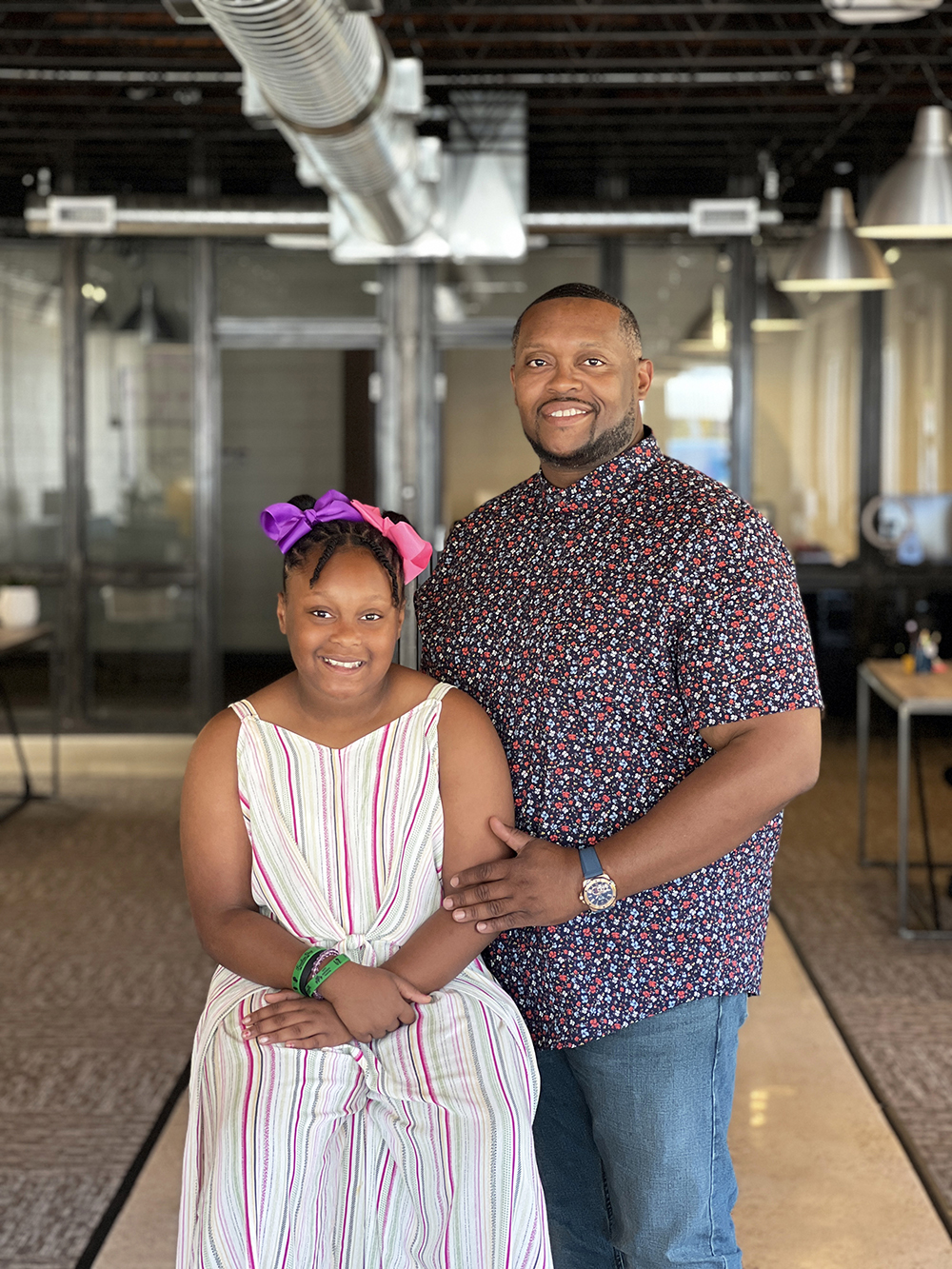Surviving Grief: David J. Keener Leans On His Village

by Taryn Givan
David J. Keener and his daughter, Payton, began an unexpected journey on March 3, 2019, when wife and mother Nichole—affectionately known as Cole—passed away suddenly.
“It shook our lives immensely,” David said.
According to the United States Census Bureau, 6% of single fathers in the U.S. are widowed. As if dealing with grief weren’t hard enough, adjusting to a spouse’s loss is challenging, especially when dependent-age children are involved.

For David and Payton, forming a therapeutic alliance helped them cope with the trauma. Moving from California back home to Texarkana also helped.
“We had a wonderful support team there, but nothing can replace family,” David said.
David and Payton’s therapeutic alliance includes a shared understanding of how everyone has been personally impacted by Nichole’s loss, including academic implications for Payton.
“I have made some major sacrifices for my daughter, but I wouldn’t dare complain about that,” he said. “Everything that I do has to be for her, and I wouldn’t have it any other way.”
David learned these important lessons about supporting his daughter while they both grieved.
1. Remember that it takes a village.
“I want Payton to be comfortable on this journey, so I developed a village that would be able to support her where I couldn’t.”
2. Make sure your relationship has a strong foundation.
“This journey without Nichole has not been easy, but God has graced us to walk it out gracefully. As difficult as this has been, the fact that I was already active in Payton’s daily routine eased the initial transition.”
3. Maintain a nurturing atmosphere in the home.
“I never gave her space to shut down or to become numb to her new reality. I created an atmosphere where being open about her emotions was accepted at all times.”
Don’t be afraid to mourn together.
“One of the most valuable aspects of this journey has been sharing tears together. That seems strange, but in actuality it gives us strength because we use those moments to build our emotional fortitude versus breaking us emotionally in the future.”
4. Keep education in focus.
“I can teach a good Bible lesson, but not a school lesson. Payton was in a learning environment that taught 90% Spanish and 10% English. She could not read any English, and when we moved back to Texarkana, we discovered that no similar program existed. Our village stepped in and helped us tremendously. My mother found a veteran reading teacher to help Payton get on track to reading fluently in English. Educational consultant Taryn Givan has provided valuable resources and made a lasting impact on Payton’s life. A friend in our village told me to have her tested for dyslexia, and that’s what I did. Once she started to receive the proper support at school, her learning trajectory changed for the better. I didn’t do this on my own—our village gets the credit!”
5. Know that you are your child’s most powerful advocate.
“Never be ashamed to admit that your child needs assistance and you aren’t capable of doing it yourself. Pay attention to your child and make yourself aware of their learning deficiencies. Upon receiving the news that Payton had dyslexia I was relieved, but I was also gripped by fear. I didn’t want my child to be made fun of at school because of this learning disability. I didn’t want her to shut down and resent me for choosing what was best for her. My pride as her father was getting to the best of me. I made a conscious decision to denounce pride and accept the reality of her situation. My daughter needed help, and I was not going to give up on her. My pride almost cost her the educational assistance she needed to be successful.”
6. Be willing to grow emotionally.
“Don’t let your tough side ruin your daughter’s experience with the first man she will learn love from. It’s okay to get your feet and nails done with your daughter. It’s okay to play dolls with her. It’s okay to do hair. Make memories with that little girl so that when she becomes a woman, she will become an adult with a firm and supportive foundation.”
About the Author: Taryn Chambers Givan, a native of Texarkana, Texas, is the Founder & CEO of Divergent Educational Consulting, LLC and Manager of Learning & Development-1:1 Services and Instructional Coach with BetterLesson. She is in her 21st year as an educator and is the blessed wife of Antonio, mother of Endyia and bonus mom to Breylon and Ashton. Learn more about Taryn at divergenteducationalconsulting.com.









